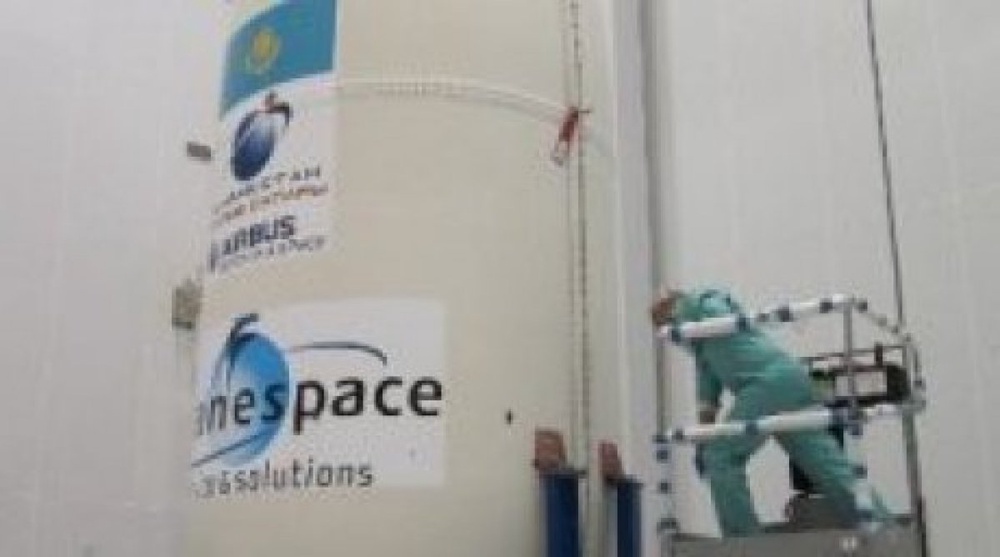
Kazakhstan's KazEOSat-1 Earth observation satellite was not launched from Kourou space centre in French Guiana as planned on April 28, Tengrinews reports. The launch will take place tomorrow, on April 30, 2014.





Kazakhstan's KazEOSat-1 Earth observation satellite was not launched from Kourou space centre in French Guiana as planned on April 28, Tengrinews reports. The launch will take place tomorrow, on April 30, 2014.
French Arianespace, the world's first commercial space transportation company, released a press statement explaining what happened at the launching pad. It turned out there was a technical problem and the lift off from pad ELA-1 was cancelled right before the T-10 minutes count.
"Arianespace observed a non-compliant behavior of the payload’s ventilation umbilical during countdown after the gantry’s withdrawal," the company said. Arianespace spent several hours performing an inspection and then rescheduled the launch to April 29.
But the launch was cancelled again, this time over the weather. According to Stephane Israel, Chairman and CEO of Arianespace, it was planned to launch the Vega booster with the satellite at 07:35 Astana time (01:35 UTCT) on Tuesday, April 29. But the launch was postponed because the weather conditions were too bad for Vega to sustain.
The Chairman of Kazakhstan's space agency Kazcosmos, Talgat Musabayev, is now in Kourou. He commented on the delay by saying that Kazakhstan understood the situation that occurred "due to meteorological conditions" and that it "fully trusts the decisions of Arianespace".
The launch was rescheduled for the second time, to April 30. But the weather forecast is still not very good, so it remains for us to hope that the first Kazakhstani surveillance satellite will finely reach its orbit.
It is going to be only the third launch of the Vega carrier rocket. The young four-stage booster was designed to carry small scientific spacecraft and other light payloads. It will take 55 minutes and 29 seconds for the Vega booster to release the satellite after liftoff.
KazEOSat-1 is a 900kg satellite with expected lifespan is 7.5 years to be deployed into a Sun-synchronous orbit. The satellite was built by Airbus Defence and Space for Kazakhstan. It will deliver high-quality panchromatic and multispectral products for a wide range of applications like environmental monitoring, management of natural resources, and homeland surveillance. It can also be an aid in forecasting natural disasters, monitoring agricultural crops and exploration of national resources, including oil.
Writing by Dinara Urazova, editing by Tatyana Kuzmina


 +7 (777) 001 44 99
+7 (777) 001 44 99















































